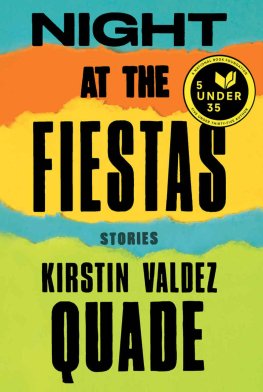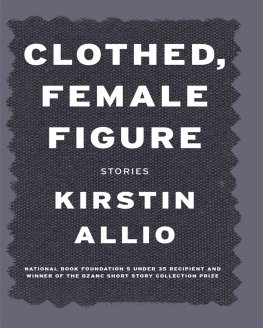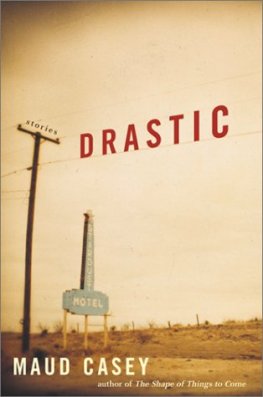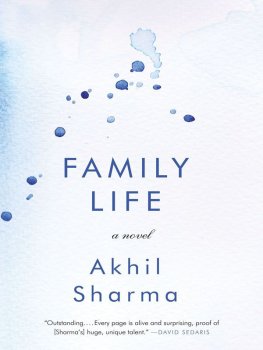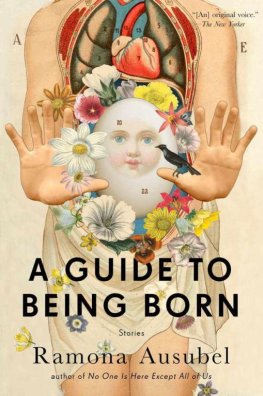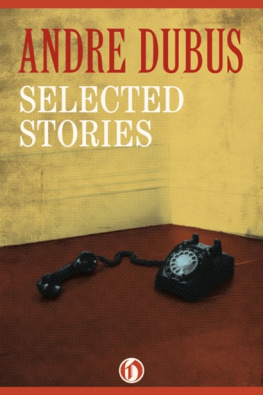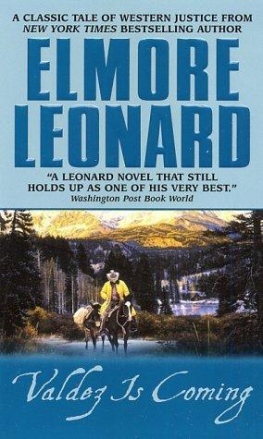Kirstin Valdez Quade
Night at the Fiestas: Stories
For my grandparents,
LORENZO EPIFANIO VALDEZ
and JENNY ZAMORA VALDEZ,
and my great-aunt,
LEILA VALDEZ HALLUMS,
with love and gratitude

IN MY EARLIEST MEMORY OF MY COUSIN NEMECIA, WE ARE walking together in the bean field. Ive been crying, and my breath is still juddering and wrecked. She holds tight to my hand and says cheerfully, Just wait, Maria, wait til you see. I dont recall why I was upset or what my cousin showed me that day. I remember only that my sadness receded like a tide, replaced by a new quiet fizz of anticipation, and that Nemecias shoes had heels. She had to walk tipped forward on her toes to prevent them from sinking into the dirt.
Nemecia was the daughter of my mothers sister. She came to live with my parents before I was born because my aunt Benigna couldnt care for her. Later, when Aunt Benigna recovered and moved to Los Angeles, Nemecia had already lived with us for so long that she stayed. This wasnt unusual in our New Mexico town in those years between the wars; if someone died, or came upon hard times, or simply had too many children, there were always aunts or sisters or grandmothers with room for an extra child.
The day after I was born, my great-aunt Paulita led seven-year-old Nemecia into my mothers bedroom to meet me. Nemecia was carrying the porcelain baby doll that had once belonged to her own mother. When they moved the blanket from my face so that she could see me, she smashed her doll against the plank floor. The pieces were all found; my father glued them together, wiping the surface with his handkerchief to remove what oozed between the cracks. The glue dried brown, or maybe it dried white and only turned brown with age. The doll sat on the bureau in our bedroom, its face round and placidly smiling behind its net of cracks, hands folded primly across white lace, a strange and terrifying mix of young and old.
Nemecia had an air of tragedy and glamour about her, which she cultivated. She blackened her eyes with a kohl pencil, and wore glass beads and silk stockings, gifts from her mother in California. She spent her allowance on magazines and pinned the photographs of actors from silent films around the mirror on our dresser. I dont think she ever saw a film not, at least, until after she left us, since the nearest theater was all the way in Albuquerque, and my parents would not in any case have thought movies suitable for a young girl. Still, Nemecia modeled the upward glances and pouts of Mary Pickford and Greta Garbo in our small bedroom mirror.
When I think of Nemecia as she was then, I think of her eating. My cousin was ravenous. She needed things, and she needed food. She took small bites, swallowed everything as neatly as a cat. She was never full and the food never showed on her figure.
She told jokes as she served herself helping after helping, so that we were distracted and didnt notice how many tortillas or how many bowls of green chili stew she had eaten. If my father or little brothers teased her for her appetite, she burned red. My mother would shush my father and say she was a growing girl.
At night she stole food from the pantry, handfuls of prunes, beef jerky, pieces of ham. Her stealth was unnecessary; my mother would gladly have fed her until she was full. Still, in the mornings everything was in its place, the waxed paper folded neatly around the cheese, the lids tight on the jars. She was adept at slicing and spooning so her thefts werent noticeable. Id wake to her kneeling on my bed, a tortilla spread with honey against my lips. Here, shed whisper, and even if I was still full from dinner and not awake, Id take a bite, because she needed me to participate in her crime.
Watching her eat made me hate food. The quick efficient bites, the movement of her jaw, the way the food slid down her throat it sickened me to think of her body permitting such quantities. Her exquisite manners and the ladylike dip of her head as she accepted each mouthful somehow made it worse. But if I was a small eater, if I resented my dependence on food, no matter, because Nemecia would eat my portion, and nothing was ever wasted.
I WAS AFRAID OF NEMECIA because I knew her greatest secret: when she was five, she put her mother in a coma and killed our grandfather.
I knew this because she told me late one Sunday as we lay awake in our beds. The whole family had eaten together at our house, as we did every week, and I could hear the adults in the front room, still talking.
I killed them, Nemecia said into the darkness. She spoke as if reciting, and I didnt at first know if she was talking to me. My mother was dead. Almost a month she was dead, killed by me. Then she came back, like Christ, except it was a bigger miracle because she was dead longer, not just three days. Her voice was matter-of-fact.
Why did you kill our grandpa? I whispered.
I dont remember, she said. I must have been angry.
I stared hard at the darkness, then blinked. Eyes open or shut, the darkness was the same. Unsettling. I couldnt hear Nemecia breathe, just the distant voices of the adults. I had the feeling I was alone in the room.
Then Nemecia spoke. I cant remember how I did it, though.
Did you kill your father too? I asked. For the first time I became aware of a mantle of safety around me that Id never noticed before, and it was dissolving.
Oh, no, Nemecia told me. Her voice was decided again. I didnt need to, because he ran away on his own.
Her only mistake, she said, is that she didnt kill the miracle child. The miracle child was her brother, my cousin Patrick, two years older than me. He was a miracle because even as Aunt Benigna slept, dead to the world for those weeks, his cells multiplied and his features emerged. I thought of him growing strong on sugar water and my aunts wasting body, his soul glowing steadily inside her. I thought of him turning flips in the liquid quiet.
I was so close, Nemecia said, almost wistfully.
A photograph of Patrick as a toddler stood in a frame on the piano. He was seated between Aunt Benigna, whom I had never met, and her new husband, all of them living in California. The Patrick in the photograph was fat-cheeked and unsmiling. He seemed content there, between a mother and a father. He did not seem aware of the sister who lived with us in another house nine hundred miles away. Certainly he didnt miss her.
You better not tell anyone, my cousin said.
I wont, I said, fear and loyalty swelling in me. I reached my hand into the dark space between our beds.
THE NEXT DAY, THE WORLD looked different; every adult I encountered was diminished now, made frail by Nemecias secret.
That afternoon I went to the store and stood quietly at my mothers side as she worked at the messy rolltop desk behind the counter. She was balancing the accounts, tapping her lower lip with the end of her pencil. As always by the end of the day, a halo of frizz had sprung around her face.
My heart pounded and my throat was tight. What happened to Aunt Benigna? What happened to your dad?
My mother turned to look at me. She put down the pencil, was still for a moment, and then shook her head and made a gesture like she was pushing it all away from her.
The important thing is we got our miracle. Miracles. Benigna lived, and that baby lived. Her voice was hard. God at least granted us that. Ill always thank him for that. She didnt look thankful.
But what happened? My question was less forceful now.
My poor, poor sister. My mothers eyes welled and she shook her head again. Its best forgotten. It hurts me to think about it.
I believed that what Nemecia told me was true. What confused me was that no one ever treated Nemecia like a murderer. If anything, they were especially nice to her. I wondered if they knew what shed done. I wondered if they were afraid of what she might do to them. My mother afraid of a child the idea was outrageous, but it explained, perhaps, the little extra attentions she gave my cousin that so stung me: the brush of her fingertips on Nemecias cheek, the way, when kissing us goodnight, her lips lingered against Nemecias hair.

